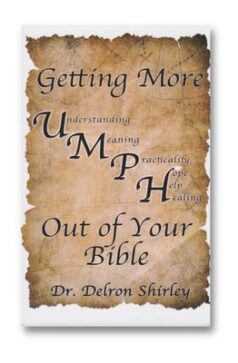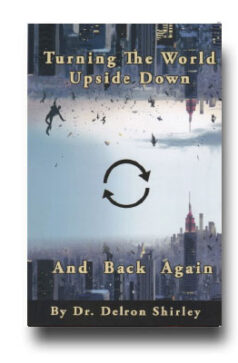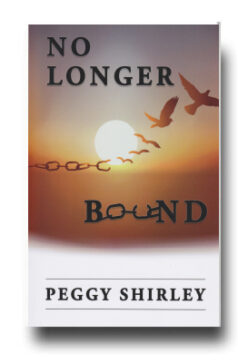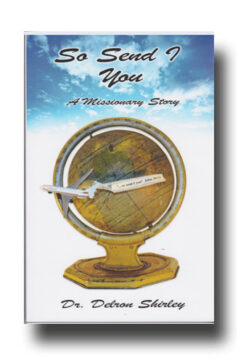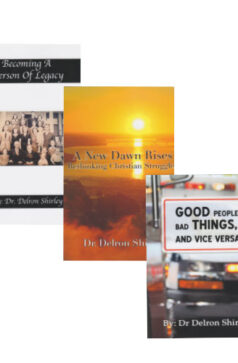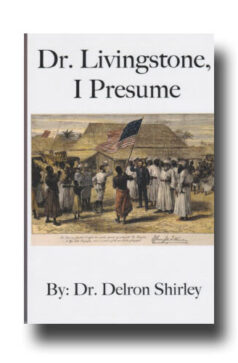God’s Unique Book
The Bible is the most extraordinary book that has been written in all of human history. Through history, it has been outlawed, confiscated, and burned by the thousands of copies. Armies have marched in attempts to destroy it. Whole organizations have been created within different governments to seek out and imprison those among the populace who have Bibles. There have been all types of legal attempts to make this Bible disappear. In addition, some of the most astute minds of human history have written books to try to counter the Bible. Some have dedicated their entire lives to trying to disprove this book. There has never been another book in all of human history that has had so much of an attack against it legally and philosophically. Yet, this is a book that refuses to die. It is a book that refuses to disappear. Every place where the enemy has tried to stamp it out, it has proliferated. Interest in its message continues to grow, making interest more and more intense and the book more and more important to the people.
It is not just a common book. It is a book that was written over sixteen hundred years of history with forty different people contributing to it; yet, all of them flow together to tell us the same truths. This book is made up of many books. Inside this book you can read history, mysteries, prophesies, poetry, and intrigue. This is a book that even has cookbook characteristics when it tells us what to eat and what not to eat. It is unique in that it takes even its greatest heroes and exposes their flaws.
The Bible holds a unique record in being the most translated book in all of human history. In addition, the Bible holds the world record as the book that has been translated first into most languages. There are many tribes living in the far jungles and distant deserts who had no written language until their written language was given to them by Bible translators who came into their world and dedicated their lives to studying the language and getting the Bible into the people’s languages. After they study the language spoken by that tribe and transcribe it into written form, they hand them a book to read; that book is always the Bible, the Word of God. Yet, much of the world is still waiting to see this precious book. There are six thousand five hundred twenty-eight languages in the world, four thousand two hundred ninety-five of which presently have no translation of the Bible. Eighty-five percent of all the Bibles in the world are in English, while only nine percent of the world’s population can read English. Of the two thousand two hundred thirty-three languages in which at least portions of the scripture are available, only three hundred seventy-one have the complete Bible and sixty others have the full New Testament. Thirty percent of the languages in Africa have no scripture; five percent of the languages in the Americas are without translations; twenty percent of the tongues in the Pacific do not have any part of the Bible; five percent of the Eurasian tongues are still waiting for the scripture; and forty percent of the Asian languages are yet to convey the message. Even when the scriptures are made available, all problems will not automatically be solved since there are over two billion people who can’t read the language they speak. There is exciting hope in that a recent anonymous gift of fifty million dollars to Wycliffe USA, a Bible translating organization, will allow them to use cutting-edge translation techniques to accelerate the pace of language development and Bible translation for the world’s remaining language groups. The previous estimate that it would take between a hundred and one hundred fifty years to complete the task was suddenly cut overnight to a mere seventeen years!
The Bible is unique in that this one book has spurred literally libraries of other books. People have read this book and received insight, revelation, and inspiration to write other books on what they have found in this one book. The volumes could literally fill libraries. Many of the most brilliant minds of human history have dedicated their lives to translating and interpreting this book. This one book is not only a wealth of knowledge in its own right, but also a springboard for conveying all sorts of information.
The Bible is probably the most candid piece of literature ever published. It doesn’t just tell us about all the battles that David won; it doesn’t just tell us about all the anointed psalms David wrote; it also tells us about David’s failures. The Bible is very honest and unabashed about the lives of all its great heroes.
The Bible has become the basis for human living and human government all over the world. If you look at every nation’s laws, almost all of them are patterned after the Ten Commandments and Old Testament law. It is a book that is the foundation for all of human living and all of human society.
It is also very interesting how the Bible was preserved so accurately. Before the invention of the printing press, scribes had to transcribe the Bible by hand. If these scribes found that they had made an error, they would tear the whole page up, destroying an entire day’s work because it was not perfect. When the Dead Sea Scrolls were discovered, they provided us with copies of the Old Testament which were about a thousand years older than the oldest existing texts. Amazingly, there were only minimal changes in the words of the texts, even though the scriptures had been through the hands of hundreds of transcribers in the centuries between the two versions. The Bible was preserved point-by-point, word-by-word through all of human history. There are very few variances in the Bible. The basic texts of the Bible have been preserved for hundreds of years without any error. Someone once joked that the Bible is accurate from Genesis to Concordance.
This book is unique. Throughout history, people have criticized it and called it inaccurate. But every time it has been challenged, the Bible has stood victoriously in defending itself against that challenge. For centuries, some historians have said that the Bible was not true. One of the reasons they refuted it was because it speaks of the Hittites. When the Israelites came out of Egypt and went into the Promised Land, one of the nations they fought against very strongly was the Hittites. Because archeologists had never uncovered any secular records referring to the Hittite nation, historians believed that no such people had ever lived. For centuries, they accused the Bible of being only a myth. In the late nineteenth century, records were uncovered that the Hittites did exist and constituted one of the great empires of history. Before archeology confirmed that there was indeed an entire nation of Hittites, the only ones who knew the truth were those who believed the Bible. The Bible disproved everyone else’s theories.
The Bible tells us that King Solomon mined for iron and copper; however, geologists believed there to be no iron or copper anywhere in the land of Israel. They said that the Bible was full of contradictions and, therefore, not true. Around the beginning of the twentieth century, a man named Gullick spent twenty years traveling throughout the land of Israel looking for iron and copper because he believed the Bible. In his excavations near the Dead Sea, he uncovered a copper mine and about a dozen refineries that Solomon used to refine the copper – again proving the Bible’s inerrancy.
The Bible says that Solomon had built entire cities where his cavalry and horses were stationed; however, there was no record in history for this except in the Bible. That is, until the University of Chicago spent about a million dollars looking for Solomon’s horse stalls and they found them in the city of Megiddo where the Battle of Armageddon will one day be fought. In fact, they excavated stalls for four hundred fifty horses. Men had challenged the Bible and said it was not true, but again the Bible was proven true and accurate.There was a time in history when people challenged the Christmas story as recorded in the book of Luke because it says that Cyrenius was governor of Syria when Jesus was born and that Augustus was the emperor in Rome. For centuries, historians challenged the text because Cyrenius was governor long after Augustus’ death. The critics were convinced that the Bible must be wrong – until an archeologist uncovered documents showing that Cyrenius was one of the few people in all of history who served in the same position two different times. Historians knew about his second term as governor of Syria, but archeologists found that he also had another term years before – during Augustus’ reign. Again, the Bible justified itself against the men who said that it could not be proven.
The book of Acts, telling about Paul’s going from the city of Iconium to the city of Lystra, says that Paul passed out of one country into another country. Historians, arguing that Iconium and Lystra were in the same country, called the Bible in error. Again, archeologists found that at one time in history Iconium had been annexed to a neighboring country and was not part of the same country as Lystra. That short period of time was during the exact years that Paul traveled between the two cities.
Even though people have challenged it, the Bible has always proven itself true. History and archeology prove the Bible. The Bible is without error, and – time and again – history has had to be rewritten to agree with the facts recorded in the scriptures.
The prophet Isaiah challenged the prophets of the idolatrous deities to prophesy future events to prove that they were indeed gods; however, they could barely predict that the sun would rise the next morning. (Isaiah 41:22-24, 8:19-20) On the other hand, the Bible is filled with predictions that have been fulfilled with exacting precision. Everything that it said would come to pass has come to pass. The Bible prophesied that Jesus would be born of a virgin – and He was born of a virgin. Prophesying Jesus’ death, the Bible gives many very explicit details about the crucifixion – even down to the fact that the soldiers would gamble for His clothes. These prophecies were fulfilled from the jot to the tittle. In fact, I heard a statistician explaining how significantly the crucifixion fulfilled the Old Testament prophecies by giving an illustration of the probability of one man on one day fulfilling all the Old Testament prophecies concerning the arrest, trial, scourging, and crucifixion. The comparison was that if someone were to cover the entire state of Texas with quarters, having marked one specific coin with an “X,” and then fly over the state in a helicopter and randomly descend and pick one quarter – the probability of picking up the quarter with the “X” on it would be the same as seeing all these prophecies fulfilled by one man on one day!
Ezekiel prophesied that the city of Tyre would be destroyed. And your very dust will be cast into the sea. Not long after Ezekiel’s time, the Babylonians under Nebuchadnezzar marched into Tyre and destroyed it exactly as the prophet had said, but he didn’t throw its dust into the sea. Almost three hundred years passed as the ruins of the city lay on the shores of the Mediterranean – until Alexander the Great began his campaign to conquer the world. When he came to Tyre, he discovered that a new city had been built just off the coast. In his siege of the city, Alexander swept all the rubble that Nebuchadnezzar had left into the sea, making a bridge for his army to march across to conquer the new city of Tyre. Even though there was a delay for the period of almost three centuries, everything happened exactly the way God said it was going to happen.
Jesus prophesied that the city of Jerusalem and the temple would be destroyed. When Titus attacked the city of Jerusalem, he commanded his soldiers not to destroy the temple because he wanted it to remain as a symbol of the great city he had conquered. Seeing the temple covered in gold, one of Titus’ infantrymen held up his flaming torch to loosen a piece of gold from the wall to stick into his pocket. The torch ignited the building and the temple burst into flames. Seeing what was happening, the rest of the army began to ravage the building, claiming their own nuggets of gold. By the time the frenzy was over, not one stone was left upon another. The man who would eventually become emperor of Rome gave orders not to destroy the temple, but Jesus said that it would be destroyed. The Word of God never fails. Like everything else that has been prophesied in the Bible, this prediction was fulfilled precisely – no matter what others said.
The rebirth of Israel is something we have seen in our own time. For almost two millennia, there was no nation of Israel. But – suddenly, in the fullness of time – a nation was reborn. Gathered out of nations all over the world, a nation was reborn in a single day in exactly the same geographical location where God said that it would happen. We could visit a multitude of scriptures in regard to this one historic event, but let’s limit our study to just three of the Old Testament references and one New Testament mention. The prophet Amos, who lived about two thousand seven hundred years ago, said that there would come a time when the exiles of Israel would again have Israel as their own land and that they would never be uprooted again. (verses 9:14-15) Despite many centuries of exile, May 15, 1948, saw his words fulfilled when the nation of Israel was reborn after almost two full millennia of the land being under foreign domination and the people being scattered to the ends of the earth. Ezekiel had a vision in which he saw Israel as a valley full of dried-up bones. In this vision, God showed Ezekiel that the bones would be brought back to life. (verses 37:10-14) Twenty-six hundred years later, the Jews – many like dried bones from the Nazi concentration camps – were brought back from the ends of the earth to re-establish a dead nation. Isaiah predicted that Israel would be birthed in one day. (verses 66:7-8) Modern Israel was literally born in a single day when, within a twenty-four-hour span of time, foreign control of the land of Israel formally ceased, Israel was declared an independent state, and its existence was acknowledged by the United Nations and a majority of the free world nations. In the eleventh chapter of the gospel of Mark, we read the story of Jesus’ cursing a fig tree. The very next day, He returned to the same spot and began to teach His disciples about coming events. As part of this discourse, He told them a parable about the fig tree. (Mark 13:28) Certainly, each and every disciple’s mind flashed to the fig tree which they had seen wither that morning. Jesus did not say “learn a parable from a fig tree”; He specifically said “the fig tree.” Here, just a matter of paces away from the tree which had so dramatically perished only hours before, they couldn’t help but realize that the up-coming parable was going to be based on the fruitless tree which had been cursed. The parable was a depiction of the future of Israel. Since the tree had withered so remarkably, the disciples certainly understood that the nation was facing a sudden demise, a message that came through loud and clear in the rest of His teaching that day. However, Jesus undoubtedly shocked them with His next line, When her branch is yet tender, and she putteth forth leaves… The withered tree – the one dried up from the very roots – would someday have tender branches again and begin to put out new leaves! Even though Jerusalem was facing utter destruction and Israel was facing a world-wide deportation, God promised that she would live again! And He fulfilled the promise some nineteen hundred years later when Israel became a nation again and actually became one of the most significant nations on the modern political scene.
A Book That Changes Lives
Dr. Lester Sumrall told the story about a Protestant missionary who was giving away Bibles in a predominately Catholic region. The local priest was so enraged that a Protestant had invaded his “territory” that he snatched one of the Bibles from the missionary’s hand and ripped it to shreds and threw the fragments into the gutter. A local vegetable vendor reclaimed the pages to use as wrapping paper for the produce he sold at his stand. As the local women unwrapped their vegetables, they began to read the pages and visit their neighbors to try to find the rest of the story. Before long, the entire village was engaged in a giant game of jigsaw puzzle as they tried to reassemble the testament. As the people read the story of the book, the whole village became aflame with a revival that eventually brought the entire village to Christ
Another testimony also comes from a Latin American country where a gentleman became so angered by having been given a gospel tract that he ripped the pamphlet to pieces; however, that night he couldn’t sleep as his mind kept replaying the incident. Eventually, he got out of bed and pieced the tract together again, read its message, and prayed the prayer to receive salvation.
Over half of Christians in the world attribute their salvation to the printed page, a testimony to the power of the scripture and proof that the Word of God doesn’t lose its power with time. One furniture mover came to Christ by reading a tract he found under a sofa. That little voiceless witness had been hidden there for about twenty-two years. One gospel publishing company reported receiving mail at an old address which they hadn’t used for twenty-four years, indicating that their tracts were still in circulation and doing their job a quarter of a century later.
One really amazing story which took place in a small village in north central India near the border of Nepal begins with a man who bought three cigarettes from a shopkeeper in this village. The shopkeeper took a scrap of paper from a large pile and wrapped the gentleman’s purchase. When the man returned home and unwrapped his cigarettes, the wrapper caught his attention and he began to read. Suddenly he knew that he had never read anything like this in his life. But he also realized that part of the message was missing because he had only half the page. So, in the heat of the day, the man ran back to the shop and explained to the shopkeeper that he wanted the other half of the paper. The shopkeeper simply laughed, “You see those stacks over there? It might be in there and it might not. If you really want it, go ahead and look.” For the next few hours, the cigarette smoker painstakingly took each piece from the pile and examined it. When he couldn’t find the piece that matched his, he went through the entire stack again. Frustrated and dejected, he finally started slowly home – but he suddenly remembered that on the paper there was an address in a town about twelve miles away, so he borrowed a bicycle and began the hot journey. It was very late that day when he finally found the address and anxiously knocked. When a man answered, the cigarette smoker shouted at him, “Is this your address? Did you write this?” It took the man a few minutes to calm the cigarette smoker and explain that this was the right address but that he had not written the words; the words that had so impacted the man were from the Bible!
Another story of equal interest also involves a cigarette smoker. A missionary tried to sell a New Testament to a man in Zimbabwe who was obviously interested in the book; however, it turned out that he was not interested in the content of the New Testament but was eyeing the size of the pages and the texture of the paper. It was just the right size to use to roll his cigarettes. In fact, he told the missionary that he wouldn’t buy the book but would like to have it so that he could use the pages for cigarette paper. “I will make a deal with you,” the missionary replied. “I will give you this book if you promise to read every page before you smoke it.” Pleased with himself that he indeed had the better end of the bargain, the man took the New Testament and walked away. The missionary returned to his home country but years later attended a convention in Zimbabwe when the speaker on the platform recognized him in the audience. Pointing to him excitedly, he said, “This man doesn’t remember me, but I remember him.” He explained, “About fifteen years ago he tried to sell me a New Testament. When I refused to buy it, he gave it to me, even though I told him I would use the pages to roll cigarettes.” He continued this strange testimony, saying, “I smoked Matthew. I smoked Mark. Then I smoked Luke. But when I got to John chapter three, verse sixteen, I couldn’t smoke any more. My life was changed from that moment!” Now the former smoker is a full-time church evangelist, devoting his life to showing others the way of salvation he found in this little book that had just the right size pages to roll cigarettes. Strange, isn’t it, how God honors the power of His Word to impact the lives of people!
Glen Chambers was headed for Ecuador where he was going to serve as a first-term pioneer in the heart of the beautiful Andes Mountains. When his plane crashed, leaving no survivors, all his friends and family lamented the tragic loss before he could even begin his mission work. However, an unexpected twist came several years later when a stranger knocked on the door of Glen’s mother’s home. The young lady introduced herself as a missionary serving in Colombia where she was ministering among unreached people in remote villages. She explained that she was amazed when she came upon a village where there were already believers yet the people insisted that she was the first person ever to come to them with the gospel. They went on to say that several years prior to this, one of their men was hunting in the jungle when he found a badly burned little case, but inside of it was a book. The villagers read the book and believed its message. The missionary looked at the slightly charred Spanish Bible and found a dedication addressed to Glen Chambers. She determined that when she returned to the States she would share the story firsthand with Glen’s mother, proving the power of the written word even when a preacher isn’t able to personally communicate it.
Long ago God gave a promise to His people – one we can only understand in retrospect. As the rain and the snow come down from heaven, and do not return to it without watering the earth and making it bud and flourish, so that it yields seed for the sower and bread for the eater, so is my word that goes out from my mouth: It will not return to me empty, but will accomplish what I desire and achieve the purpose for which I sent it. (Isaiah 55:10-11)
A Book That Demands Respect
A few years ago I was on an airplane sitting next to a Muslim. When I opened my Bible and began to share my faith, the Muslim lady jumped and said, “We never touch the Koran without first washing our hands!” On another occasion, I was carrying my Hebrew Bible in my hand baggage when I went through security in the Tel Aviv airport. When the Israeli security guard discovered the book in the bottom of my bag, he looked up in dismay and advised me, “We never place anything on top of the Torah!” He then proceeded to repack my bag, ensuring that the Bible was standing up so that nothing would be placed on top of it. We need not be that particular in reverencing the physical book, but we must respect the Bible for what it is – the revealed Word of God to us.
This book is the divinely inspired Word of God. Unlike any other religious book – the Koran, the Pali Canon, the Bhagavad Gita, or even your favorite daily devotional – it is God’s direct word to you. This is the word which you must hide in your heart if you desire not to sin against the Lord. (Psalm 119:11) I call it the owner’s manual for our lives because in it we find all the instruction necessary for every area of living. But because all the answers this book contains are not categorized and listed in the index for easy reference, we need to study the Bible and become familiar with its truths.
But continue thou in the things which thou hast learned and hast been assured of, knowing of whom thou hast learned them; And that from a child thou hast known the holy scriptures, which are able to make thee wise unto salvation through faith which is in Christ Jesus. (II Timothy 3:14-15)
There is nothing else that can make us wise. It is only the Bible that can make us wise unto salvation. It illuminates our thinking and our spirits. This wisdom will lead us to one thing – to salvation through God.
All scripture is given by inspiration of God and is profitable for doctrine, for reproof, for correction, for instruction in righteousness. (II Timothy 3:16) Many other books have no profit in them. But the Bible is profitable for doctrine – deciding what you believe. It is also profitable for reproof and correction. If your life is going the wrong way, it is profitable for turning you around and setting you on the right road.
One great man said, “The Bible is a book that is full of contradictions. It contradicts everything that I, as an unregenerate man, want to think. It contradicts everything that I, as an unregenerate man, want to believe. It contradicts everything that I, as an unregenerate man, want to do.” The Bible is a book full of contradictions. It contradicts our lives until we are born again and come into alignment with it. The Bible is profitable for instruction in righteousness. We are going to live lives full of contradictions until we begin to let the Bible instruct us in how to live.
Because I love thy commandments, it has made me wiser than mine enemies. (Psalm 119:98) The commandments of God renew our minds and build up our inner man. They give us an edge over those who come against us because we have the wisdom of God, found only in the Bible.
How sweet are thy words unto my taste? Sweeter than honey to my mouth. (Psalm 119:103) It is amazing to me that many Christians do not have any kind of disciplined regular Bible reading. I find the Bible sweet. When chocolate candy is in my house, it doesn’t go unnoticed. I find myself going back again and again to that candy. I am the same way with the Bible – and every born-again person should also be the same. It is sweet, and I find myself drawn back to it every day. Every day I have to have my “fix” from that Word.
The Bible came from God, guarded by the Holy Spirit and protected from error by the work of the Holy Spirit. Howbeit when he the Spirit of Truth has come, He will guide you into all truth for He shall not speak of Himself but whatsoever He shall hear, that shall He speak and He will show you things to come. (John 16:13) The Holy Spirit inspires and leads us into truth. In other words, He is working on both ends – in those who wrote the Bible, helping them to communicate God’s words precisely; and in us, helping us as we read and understand them accurately.
Your Bible – Your Life
This book is likely the most read book in all of human history. At the same time, it is the most unread book in all of human history. The reason I say this is because the Bible is continually the world’s bestseller. There has never been a book that has outsold the Bible. In all of history, only once or twice has a bestseller sold more copies in a single week or month than the Bible. But the success of the other volumes doesn’t last long, and the Bible always returns as the number one bestseller. It has been that way year after year after year. More people have read the Bible than any other book ever printed. But, at the same time, since there are so many millions of copies of the Bible, it is probably one of the least read books. How many of us have a Bible that has been sitting on the shelf collecting dust? We may have two or three Bibles for reference and another that we read daily – and the Bible that we claim to be reading, how often has it basically sat on the shelf not being read? It is likely the most unread book in all of human history because we buy copies of it, but we put them down and don’t read them.
I heard statistics recently that a survey had been made among Christians across America. In the study, they found that only one out of five have any kind of regular, systematic program for reading the Bible. That means that there are four times as many born-again Christians who have Bibles that basically sit around unopened. The survey also found that the average length of time spent reading a Bible is five minutes a day. For two out of five Christians, the only time during the week they ever open and read their Bibles is when they are in an organized group. They open the Bible because the pastor or Sunday School teacher instructs them to open to a particular passage. The same study went on to say that two out of five born-again Christians don’t even know for sure that the story of Jonah and the whale was part of the Bible or in which book it is found. We are dealing with a book that, even though it is the most popular book of all of human history, is one which remains unread and apart from our daily lives.
If you have been one of those four out of five who don’t have a daily reading schedule, then determine that today you will begin to read your Bible on a regular basis. If you are one of those who only open the Bible once a week in a church service, determine that today is the day you will begin to read the Bible every day. I recommend that the Bible be read systematically. Set a planned program of reading through the Bible so that you have a chance to expose yourself to all that it says. Three chapters a day and five on Sunday will take you through the entire book each year. Reading even one chapter a day – as long as you are consistent – is also a workable approach to familiarizing yourself with the full counsel of God’s Word. Next, I would rush to say that the Bible must be read devotionally. Yes, it must be read with the accuracy of a scientific or legal document because it is the precise truth upon which the entire universe stands and functions, but it is also a love letter – the very heartbeat of a gracious God for His treasured children. We must read it with the expectancy and excitement that we would read a personal message from our lover, dearest friend, or closest relative. However, the important thing about the scripture is that it must be read with intent to apply it to our everyday living. Principles, truths, and concepts are no more than good thoughts unless put into action. The Bible is actually spirit and life, and it becomes spiritual life inside us as we internalize it by meditating on it day and night as God commanded Joshua to do. (Joshua 1:8) We must become so full of its truth that our entire worldview and core belief system are determined by biblical principles. We should be so filled with God’s Word that we automatically have a verse that rises inside us for each situation we meet.
A clever little acrostic to help us note the proper attitude we must have toward the Word of God spells out “word”: the letter “W” represents worshipfully – read the Word with reverence. “O” stands for orderly – read systematically. “R” means regularly – read it daily. And finally, “D” reminds us to read the Bible directionally – with the intent to follow its instructions.
The Bible is a book that speaks to humanity, telling them about their condition, their need, and their answer. I believe that it was Charles Spurgeon who said, “Scripture is like a lion. Who ever heard of defending the lion? Just turn it loose; it will defend itself.” The lion of which he spoke is the Bible. Let’s not worry what the critics say. Now is the time to agree with the Bible and let it turn our lives around.



